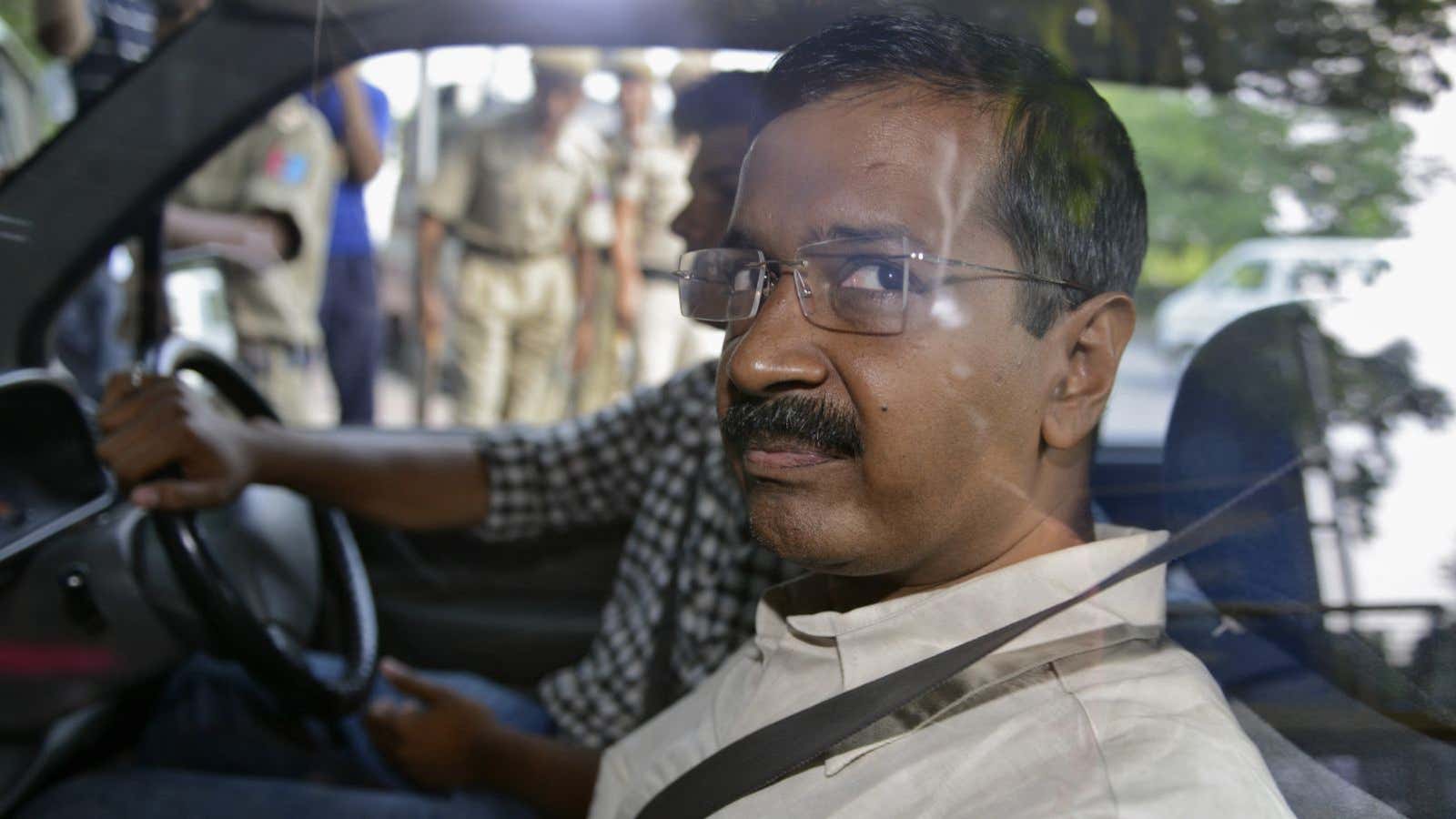Four days after staging a return to power, Delhi chief minister Arvind Kejriwal has decided to walk a fine line between kickstarting business in the national capital and managing the environment in the world’s most polluted city.
On Feb. 17, the Aam Aadmi Party (AAP) government said that small and medium enterprises (SMEs) in the city will no longer require environmental clearances from the Delhi Pollution Control Committee for setting up new establishments. But the order comes with a caveat.
The waiver, however, will only be applicable for projects that fall under two categories—orange and green—as defined by India’s environment ministry.
These categories comprise businesses that apparently have little or no impact on environment. “Orange” category industries include hotels and restaurants, automobile servicing and repairs stations, flour mills and stone crushers, while “green” establishments include printing presses, medical and surgical instrument manufacturers, apparel making, among others.
But a third category—Red—comprising polluting entities such as cements, pharmaceuticals and fertiliser industries will still need permissions from the government.
“There are no polluting industries of the scale in Delhi,” Satyendra Jain, Delhi’s minister for industries, said. “So what is the point of an environmental clearance. Both requirements regarded an acknowledgment needed from the MCD (Municipal Corporation of Delhi) and the DPCC (Delhi Pollution Control Committee)—which was only bureaucratic red tape.”
“Our effort is to make Delhi as pro-industry as possible and we want to do away with such time-consuming, needless processes,” said Jain.
Prolific polluters
But the small scale sector is one of the worst polluters in the country.
About 70% of India’s total industrial pollution load, according to the erstwhile Planning Commission (pdf), comes from micro, small and medium enterprises (MSMEs).
“MSMEs can have a significant impact on the environment as they are generally liable to be equipped with obsolete, inefficient and polluting technologies and processes,” the commission said in a report.
Delhi has one of the largest number of small scale industries in the entire country, with over half a million MSMEs employing almost two million people. These establishments not only impact Delhi’s air quality adversely, but are also a source of metals pollution in the Yamuna.
And a number of industries—including timber, tobacco, printing, food and drink—that the AAP government has just exempted from applying for the NOCs are known polluters, according to the Federation of Indian Chambers of Commerce and Industry (FICCI).
“Segments like food, drink, tobacco, printing, textiles, leather, timber, metal articles, etc, have a significant impact on the environment as they face major concerns regarding clean water, handling/ storage of toxic waste, preservation of forests, air pollution, ozone depletion, recycling of materials and many such issues,” FICCI said in a 2011 report.
“Pollution norms are in any case not being seriously enforced, and such a move will expose the community to greater health risks,” Promila Sharma, country coordinator for pollution-focused NGO Blacksmith Institute, told Quartz. “It is a shocking move taken in haste by the AAP government to please a section of traders.”
That’s a critical balancing act that even prime minister Narendra Modi has had to make as he seeks to fire up India’s economy while safeguarding the environment.
